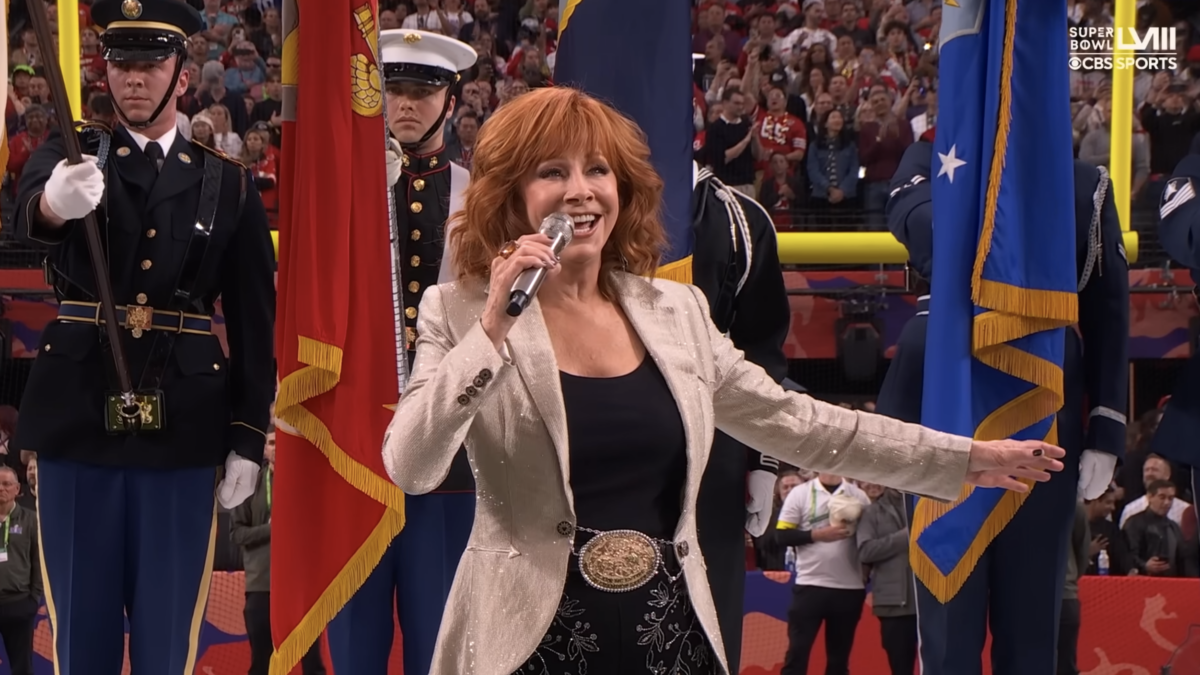In other articles about Christmas songs, I’ve focused on how the most-played ditties — mostly secular tunes from the middle of the last century — are really more about the cultural moment in which they were written than about Christmas per se. This may not be surprising; the only timeless aspect of Christmas is Jesus, and even then, there are pre-Christian influences, most notably the date itself. Different cultural eras have celebrated the holiday differently. For a spell under the Puritans, they didn’t celebrate it at all.
Wartime tunes such as “I’ll Be Home For Christmas” and “Have Yourself a Merry Little Christmas” were sad and wistful. Postwar songs such as “Frosty the Snowman” and “It’s Beginning to Look a Lot Like Christmas” were full of families, kids, and Norman Rockwell small towns. Cold War entries such as “Do You Hear What I Hear” were a little more biblical and foreboding. Nobody will ever sing “Silent Night” with more gravitas than Frank Sinatra.
It’s truly remarkable how much cultural production took place in that sliver of American life between roughly 1940 and 1965. As far as today’s popular Christmas playlist goes, however, one wonders whether we aren’t aping the old Puritans and beginning again to cease our celebrations.
Very few of the songs played on mainstream holiday radio were written after the 1960s. One of them — you may have heard of it — is Mariah Carey’s “All I Want For Christmas Is You,” a sort of last gasp of complacent 20th-century joy before Enron, 9/11, Iraq, Katrina, and the Great Recession upended the American cultural outlook.
Before going on, it’s worth dispatching with that other post-’60s standard: “Last Christmas,” which many regard as an anti-Christmas song. I suspect it is rather like the Thanksgiving turkey you just finished: We consume it because it’s seasonal and it’s there, but nobody really likes it. Sure, there are 1,000 versions of it, but that’s like saying at least there are 1,000 versions of that creepy YouTube video where a Russian-speaking Mickey Mouse runs over Elsa in a toy dump truck.
“All I Want For Christmas Is You” is certainly overplayed, as is almost all mainstream Christmas music. But it manages to stand out from the pack. It’s a rare song that mixes Christmas with romance, without a hint of raunchiness (Michael Bublé sure sounds like he’s talking about more than decorating the tree when he sings about “all the fun we had last year” in “Baby Please Come Home”) or double entendre (“Santa Baby,” because some people have thought too much about the meaning of “hurry down the chimney”).
Indeed, it’s a pleasant reminder in what feels like an ever-coarsening culture that it’s possible to allude to adult romance and even sex without being dirty or particularly suggestive. That shouldn’t need reminding, of course, but it does nonetheless. Few pieces of popular culture today are edifying, and the few that are either tend to come out of a conservative Christian parallel culture with little penetration into the mainstream (think Christian rock and “God’s Not Dead”) or are savaged, often from the online left, as being unrealistic, nostalgic, or insufficiently socially conscious.
“All I Want For Christmas Is You” is nostalgic and conscious. It transposes the limitless childhood joy of Christmas to adult life, which admittedly requires a certain simplification, and its instrumentation is rather retro. One fellow admirer describes it as an up-tempo refashioning of the old crooner songs. It also manages, despite its magnificent “wall of sound” style, not to sound as though it was produced by synthesizer, as so many covers and low-grade original holiday songs do. Popular culture rarely transcends itself, but seeing real skill and artistry in production is still gratifying.
Despite its simplicity, Carey’s lyrics contain one little complexity, even a hint of feminism. I’ve always misheard the line “I just want you for my own” as “I just want to be your own.” My misheard lyrics have her asking to belong to her man. The actual lyrics place her in the lead role in her romance without vulgarity.
Perhaps “All I Want For Christmas Is You” is just a song. But it’s a remarkable one in a way, and if we were still writing Christmas songs these days, we probably wouldn’t write it again. We’re too jaded, too burdened, or too socially concerned for something so sweet, frivolous, and innocent to get through the cultural censors or the glum, fractious zeitgeist. Next time you hear it play for the 10th time on the same day, leave the volume up — and consider all the versions of “Last Christmas” it could have been instead.









